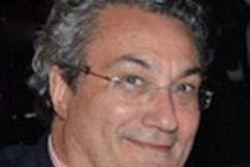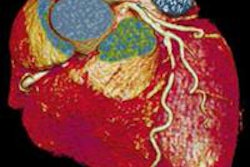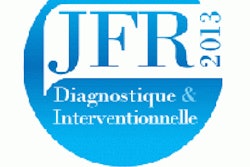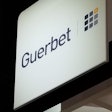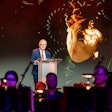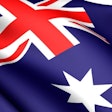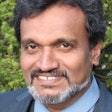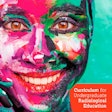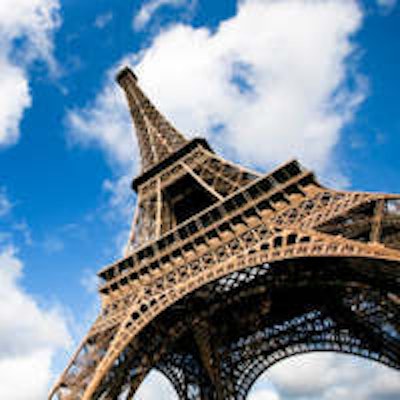
The French national congress of radiology, JFR 2014, begins in Paris on Friday and will take place over only four days, instead of the usual five. Emergency diagnostic and interventional imaging are the central themes of the congress.
"We thought the condensed format would be more financially interesting for delegates, who would have one day less to budget for, and less expenditure," noted JFR President Dr. Jean François Meder, PhD, head of neuroimaging at Sainte-Anne hospital in Paris. "Attendees will still benefit from an identical scientific program, as we have made the most of available time by ending each day's program at 18.30 hours, rather than at 17.00, as in previous years. It was a necessary decision that was taken this year."
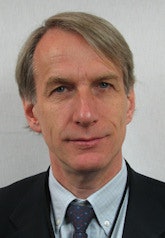 JFR delegates will benefit from an identical scientific program, said Dr. Jean François Meder, PhD.
JFR delegates will benefit from an identical scientific program, said Dr. Jean François Meder, PhD.Highlighting the opportunities that delegates will have for discovering the latest advances at the exhibition and symposia, he is keen to draw attention to the ever greater need for quality and efficiency in daily practice.
Prior to the 62nd Journées Françaises de Radiologie (JFR) Diagnostique et Interventionnelle, a day of multiprofessional training will take place on 16 October. According to the Société Française de Radiologie (SFR), the four days will boast 266 scientific sessions, around the same number as last year, with additional workshops (138, compared with 114 in 2013).
The focus is on scientific and technological innovation, and the format also provides nearly four "free" hours per day, which will allow delegates to explore the technological exhibition at their own pace, this through a 60-minute session-free window in the morning and a 45-minute window in the afternoon, in addition to the two hours programmed for lunch.
These morning and afternoon spaces in the program were specifically designed for delegates to exchange with industry figures during their visits to the exhibition this year open from 9:30 a.m. to 6 p.m. every day of the congress, according to the organizers.
"The new four-day model targets greater efficiency in terms of lectures, workshops, scientific sessions, and posters, while creating more free time for delegates," wrote SFR president, Dr. Denis Krause, PhD, in a recent editorial.
Emergency imaging, intervention, and MRI
A total of 18 thematically linked sessions will be hosted by the Federation of Emergency Imaging (Fédération d'Imagerie d'Urgence - FIU) and the Federation of Interventional Radiology (Fédération de Radiologie Interventionnelle - FRI). These sessions will focus primarily on multiorgan and cranio-encephalic embolization. Delegates should also visit the avenue of emergency imaging posters (la route de l'urgence) created by the organ-focused societies, according to Krause.
The SFR has also chosen professional demographics as a second key theme. Dr. Yvon Berland, president of the University of Marseille and also president of the National Observatory for Health Professions (l'Observatoire National des Professions de Santé - ONDPS), will be revealing his vision of medical demographics during the Antoine Béclère Lecture, on Saturday at 12:30 p.m. This issue is a major preoccupation for the future organization of medical imaging, Krause noted.
"The G4 in its capacity as a professional council can congratulate itself on the increase in the number of qualified residents in medical imaging over the next five years -- 1,218 compared to 1,114," he stated.
Increasing applications of diagnostic and interventional MRI, as well as the use of MR-guided therapy, testify to the importance of the modality in daily practice, and this area is the third prong on the JFR's thematic plan.
Increasing installation and renewal of MR systems in France has underlined the need for an update of dedicated protocols used across radiology departments in order to optimize machine time and hone accuracy of diagnostics and therapeutic follow-up for the patient, according to the SFR. With this in mind, the organ-focused societies have compiled organ- or system-relevant guidelines for imaging, and these chapters have been grouped into a complete and up-to-date guide that will be used by trainee radiologists in daily practice and that will be promoted during the congress.
Canada's special role at JFR
Building on its success from the last two meetings, the Interventional Village (Village de Radiologie Interventionnelle - VRI) will, over the four days, provide delegates with forums, specific thematic sessions, and phantom demonstrations. Targeting young radiologists in particular, delegates will have the chance to participate in training sessions using simulators and dummies and be able to share their experiences with colleagues.
With increasing numbers of Francophone delegates attending JFR, Canada is the "country of honor" at this year's meeting. Speakers from Korea, Japan, and China will bolster international participation, while the Spanish-speaking scientific societies from Mexico, Columbia, and Argentina will collaborate in a session dedicated to infections and emergency imaging.
"Our specialty, which is constantly evolving, is at the heart of essential therapeutic decisions for most pathologies. It must be innovative and angled towards research supported by a scientific environment of the highest level," Krause wrote.
Together with the France's radiology teachers association (Collège d'Enseignants de Radiologie de France - CERF), the SFR has organized many events to present the best research work, and award prizes and research grants. In addition, overseas doctors to be awarded honorary membership at the JFR include Drs. Sarah S. Donaldson (U.S.), José Ignacio Bilbao (Spain), Carlos Oulton (Argentina), and Radhi Hamza (Tunisia).
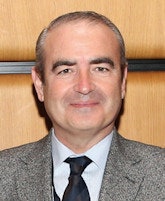 Dr. José Ignacio Bilbao, ECR 2013 president, will receive honorary membership at JFR. Photo courtesy of the European Society of Radiology.
Dr. José Ignacio Bilbao, ECR 2013 president, will receive honorary membership at JFR. Photo courtesy of the European Society of Radiology.French doctors who have significantly improved radiological practice will be similarly presented with medals of honor. Among the recipients this year will be Drs. Sylvia Neuenschwander, Jean-Michel Hervochon, Yves-Sébastien Cordoliani, and Jean-Claude Gaux.
A special industry award will go to the Guerbet group, chosen for its competence and its role as leader in the international contrast product market, and specifically for its innovative solutions for diagnostic and interventional imaging. The group also holds courses and seminars to help teachers of medical imaging as well as young radiologists aiming to get involved in research work.
"The JFR brings together 8,000 French radiologists and more than 2,000 foreign radiologists making it the first Francophone congress to involve 63 different nationalities. The significant development of international relations positions French radiology way beyond the country's borders," Krause stated. "The 62nd meeting will be marked by scientific rigour and maturity, thanks to all of its participants."




